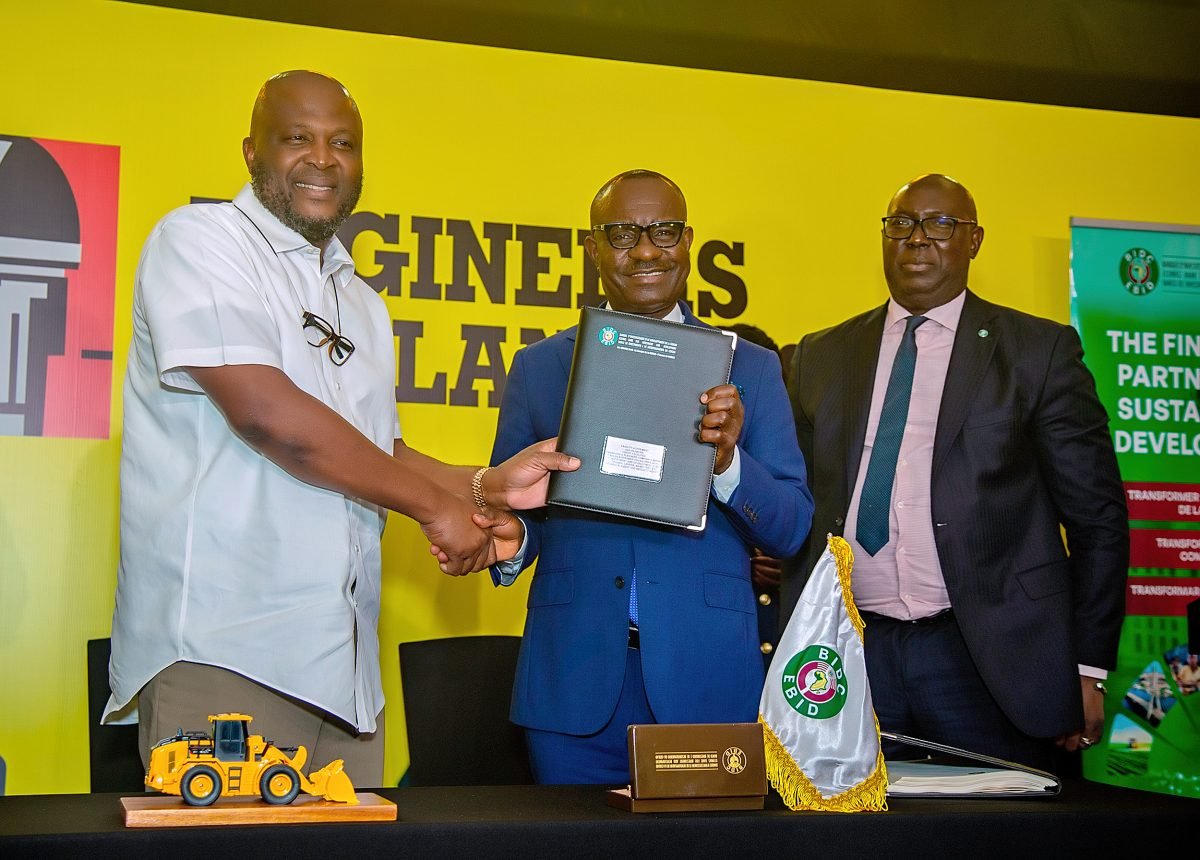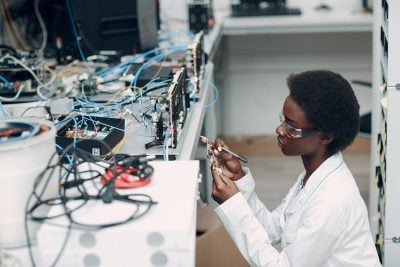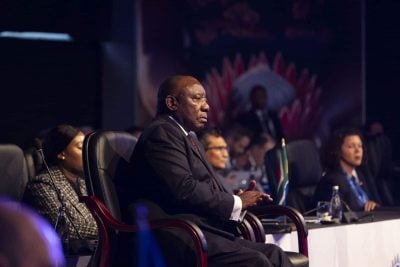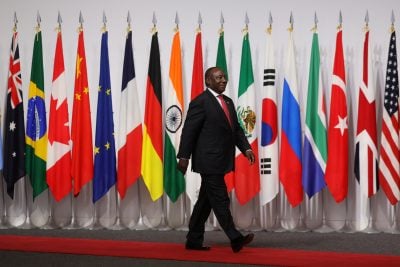This article was produced with the support of ECOWAS Bank for Investment and Development
In a major boost to local ownership and value creation in West Africa’s mining sector, the ECOWAS Bank for Investment and Development (EBID) has approved a $120 million financing facility for Engineers & Planners Limited (E&P), a leading Ghanaian mining and construction firm. The funds will enable the acquisition of the Black Volta Gold Mine, positioning E&P to become Ghana’s first fully indigenous and wholly owned mining company—a landmark achievement in the country’s natural resource narrative.
The transaction, finalised after 18 months of due diligence and negotiations, was formally sealed at a high-profile signing ceremony attended by senior government officials, regulatory authorities, and industry leaders. More than a simple capital injection, the deal signifies a shift in how West African nations are asserting greater control over their natural resource wealth, while aligning their extractive industries with global standards of environmental sustainability, corporate governance, and community engagement.
A strategic investment in Ghana’s economic engine
Gold remains a pillar of Ghana’s economy. In 2024, the mineral accounted for an estimated 57% of total export earnings, underscoring its significance to both the national treasury and the livelihoods of thousands across the country. Yet despite its vast gold reserves and a history of mining dating back centuries, Ghana’s mining sector has long been dominated by foreign-owned multinationals.
The E&P acquisition of the Black Volta Gold Mine aims to change this narrative by creating a model for local ownership that is not only viable but competitive at a global scale. For EBID, the project aligns closely with its mission to promote sustainable development and regional integration across ECOWAS member states.
Dr. George Agyekum Donkor, President and Chairman of the Board of Directors of EBID, was emphatic about the significance of the transaction. “EBID’s support for the Black Volta Gold Project reflects the Bank’s strategic focus on sectors critical to Africa’s socio-economic transformation,” he said. “Through these transactions, we are advancing inclusive growth and ensuring that mineral wealth benefits local communities and economies.”
Paving the way for industrial transformation
The financing marks another chapter in EBID’s expanding role as a key regional development finance institution. Since its inception, the Bank has committed nearly $5 billion across West Africa in sectors such as infrastructure, energy, agriculture, and private enterprise. The goal is not just to provide capital, but to catalyse systemic transformation by enabling indigenous companies to scale and compete.
The Black Volta Gold Mine project encapsulates this vision. Located in north-western Ghana, the mine holds substantial proven reserves and strategic economic potential. Until now, it has operated with limited local ownership and value addition. With E&P’s acquisition, the plan is to introduce state-of-the-art mining technologies, adhere to international environmental standards, and maximise local employment and skills development.
For E&P, this is more than just an expansion of its operations. Founded and led by Ghanaian entrepreneur Ibrahim Mahama, the company has built a strong reputation in heavy engineering, construction, and mining services. Its portfolio includes contracts with some of the world’s largest mining houses and a footprint across several West African countries. Now, by acquiring and operating its own gold mine, E&P is moving into a new phase of vertical integration and indigenous resource control.
“This acquisition is a landmark achievement for Ghana’s mining sector,” said Mahama. “E&P is committed to operating in compliance with global standards, prioritising environmental sustainability, and creating long-term value for all stakeholders—especially local communities.”
Driving local participation and shared prosperity
A core aspect of the deal is its focus on inclusivity and local empowerment. EBID has been vocal about ensuring that large-scale investments trickle down to local economies, rather than being captured solely by elite or external interests. In the case of the Black Volta Gold Project, a portion of the financing will be used to support community infrastructure, local supplier development, and training initiatives designed to increase Ghanaian participation at every level of the mining value chain.
This inclusive approach is seen as essential not only for long-term sustainability but also for maintaining social licence to operate—a crucial factor in the increasingly scrutinised global mining sector. Across Africa, calls are growing louder for a more equitable sharing of resource wealth, and EBID’s approach with E&P could offer a replicable model for other countries and sectors.
Indeed, the transaction comes at a time when African governments are under increasing pressure to reform their mining codes, prioritise beneficiation, and ensure that natural resource extraction translates into lasting national wealth. For Ghana, the Black Volta deal adds momentum to these efforts and may help spur more indigenous players to enter the sector.
Leveraging regional potential
At the broader ECOWAS level, the deal is also a nod to the region’s untapped potential in mineral resources. West Africa is home to vast deposits of gold, bauxite, iron ore, and other critical minerals, yet regional cooperation in terms of shared infrastructure, cross-border investment, and harmonised regulation remains limited.
Through its investments, EBID is actively working to bridge these gaps and foster greater regional integration. By backing indigenous champions like E&P, the Bank is not only supporting national economic development but also strengthening the foundations of intra-African trade and industrialisation—a key pillar of the African Continental Free Trade Area (AfCFTA).
“Industrialisation must be anchored in indigenous capability,” noted Dr. Donkor. “It is not enough to extract resources; we must also process, add value, and build ecosystems that empower local entrepreneurs and SMEs. This is what the E&P deal represents—a step forward in building African champions for Africa’s future.”
Environmental and ESG commitments
Another critical component of the financing deal is its emphasis on environmental, social, and governance (ESG) standards. E&P has committed to implementing world-class environmental safeguards at the Black Volta site, including water management systems, land rehabilitation, and community consultation mechanisms.
This is in line with EBID’s own environmental policy framework, which demands that financed projects meet international standards on sustainability and social impact. In recent years, EBID has strengthened its due diligence protocols to ensure that projects not only deliver financial returns but also contribute positively to climate resilience and inclusive development.
In a region already experiencing the impacts of climate change, this ESG-conscious approach is gaining traction. By insisting on sustainability as a precondition for financing, institutions like EBID are helping to reframe what responsible mining looks like in an African context.
Looking ahead
The Black Volta transaction could serve as a turning point—not just for E&P or Ghana, but for how development finance institutions across Africa prioritise local ownership and long-term value creation. As resource nationalism gains traction globally, and as African leaders seek to diversify their economies, deals like this underscore the importance of indigenous private sector leadership.
EBID’s $120 million facility represents more than just a financial transaction. It is a strategic investment in a future where African companies play a central role in unlocking the continent’s vast mineral wealth—on their own terms, for their own benefit, and with a clear-eyed commitment to sustainability and social equity.
For E&P and its partners, the real work now begins: proving that a wholly Ghanaian-owned mining company can not only compete, but lead.

 Sign in with Google
Sign in with Google 



